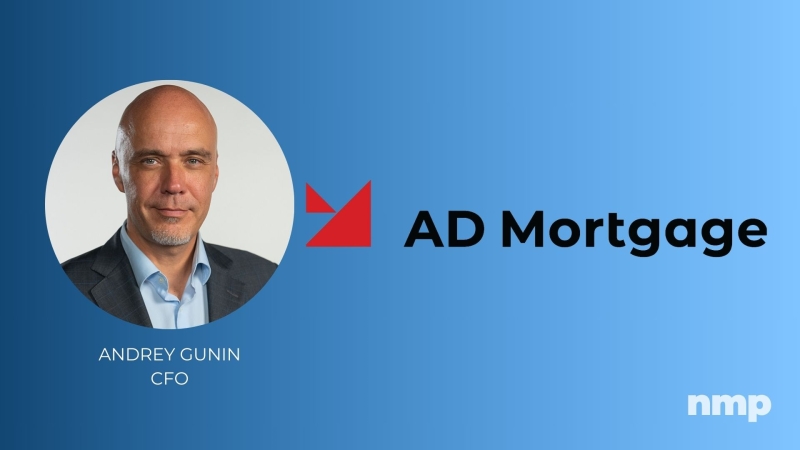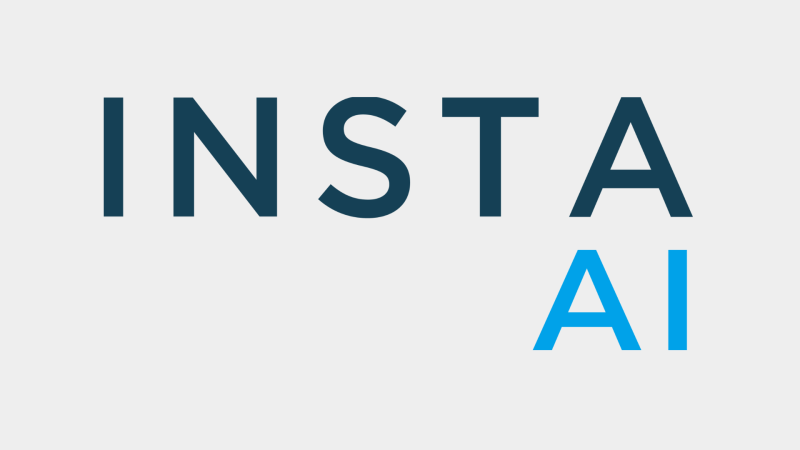Advertisement
NMP Mortgage Professional of the Month: Len Oslar, Senior Vice President, Nationwide Equities Corporation

Each month, National Mortgage Professional Magazine will focus on one of the industry's top players in our "Mortgage Professional of the Month" feature. Our readers are encouraged to contact us by e-mail at [email protected] to be considered for a future "Mortgage Professional of the Month" feature article. This month, we had a chance to chat with Len Oslar, senior vice president of Nationwide Equities Corporation.
As senior VP of sales for Mahwah, N.J.-based Nationwide Equities, Len is responsible for sales training and product development for all of the company’s branches, while managing operations and overseeing compliance for the company’s reverse mortgage and Federal Housing Administration (FHA) business. Len has held a number of sales management positions throughout his 30-plus year career in the mortgage industry, including positions with American Mortgage Express; MortgageIT; First NLC Financial Advisors; Mortgage Capital Investors Inc., a Union Bankshares Company); American Home Mortgage; and GMAC Mortgage where he began his career. At every stop along the way, Len has been a proven leader in developing branches at each stop along the way.
Len has been with Nationwide Equities Corporation since 2004. The company was formed in 1999 in Copiague, N.Y., focusing on the market in Long Island, N.Y. Since 2004, Nationwide Equities has expanded, currently with more than 20 locations nationwide. The company maintains an expanding network of branches that spans across Connecticut, Florida, New Jersey, New York and Pennsylvania.
What was your first job in the mortgage business?
My first job selling directly in the mortgage business was back in 1979. I joined my first company, GMAC Mortgage, as a loan officer. In the first three months of my career of selling, I did a seminar for 20 real estate agents … that’s the way the game was then. I was forced to learn the business and had to learn it quickly. In that first 90 days of being in the industry, I knew how to sell FHA, U.S. Department of Veterans Affairs (VA) and conventional loans. I was working directly with real estate agents and was building very strong relationships with them and builders. The bulk of my business came from both the real estate agents and builders. Within my first 18 months in the industry, I became sales manager of the GMAC office I was at, and I was responsible for bringing aboard loan officers and training them.
After four years of strictly writing loans and serving as sales manager, I took over the company’s office in Haddonfield, N.J. as branch manager. Over the course of the next seven years, we became a very successful branch, doing $100 million in loans annually. I was promoted to area sales manager for GMAC Mortgage in 1990. Little by little, we amassed 25 branch offices, beginning in New Jersey, then adding branches in Maryland, Virginia and the Carolinas. At our height, we were closing in excess of $1 billion per year, as at that point, I was no longer producing loans directly, but running the entire operation of the company. My knowledge of all aspects of loan production enabled me to be a very successful area sales manager.
Going back to when you first started and were doing relationship-building seminars, were homeowner seminars also part of the equation?
We did do some homeowner seminars, but at that time, most of the business in the late 1970s and early 1980s was coming directly from the builders and real estate agents. We did homeowner seminars in the mid- to late-1980s, when homeowners, instead of just listening to their real estate agents and builders, began going directly to the mortgage company/lender and started searching for homes themselves. Now, it is more important than ever for us to not just be the best real estate agent or broker, but to also provide our customers with the tools and answers they need in making correct and educated decisions when purchasing a home.
Fast-forward to today … what techniques taught in those seminars are still being used today? What tactics that you learned and developed back then work in today’s market?
Today, you have to do everything. You have to reach out to potential and current homeowners … you have to hold meetings … you have to get out there into communities and set up meetings with senior citizen groups—all with the purpose of providing valuable knowledge and educating them on the homeownership process.
Very often, senior citizens get the wrong idea about products like reverse mortgages. They think that they won’t be able to own their home, and that it’ll be owned by someone else, and they’ll have to give up the title. Obviously, that’s not the case, as reverse mortgages are programs that are very beneficial in helping seniors stay in their homes. Today, it's very difficult for seniors to maintain their lifestyle, they're struggling. Their kids cannot help them, and the only way for them to stay in their own place and get some help, whether it's in the form of cash at closing, a line of credit or anything that can benefit them, the opportunity is there with a reverse mortgage. I really love the reverse mortgage business, as it's really a very low key direct program to help people.
Do you see any HECM (Home Equity Conversion Mortgage) purchase business being done and do you hold reverse mortgage-specific seminars geared toward seniors?
The HECM purchase is relatively new and many companies do not offer it because they do not know how to properly sell it. It’s actually really not a “sell,” but simply educating people on how to get a reverse mortgage. It's a program that is becoming more popular. So far in 2011, we have seen a rise in reverse purchases over last year’s totals.
Do you think as home values continue to get hammered in the northeast that the HECM purchase program will lose its power?
I think it comes down to … as home values flop, the HECM purchase is really ideal for seniors to buy an affordable property wherever it may be. Maybe it's something that would have cost them $300,000 that is now $250,000. The dropping of home values has opened the doors maybe even more so to the affordability of getting that home.
What do you see on the horizon for the HECM product?
With 10,000 Americans turning 65 ever day, the future of the reverse mortgage looks bright. Each day, I read articles about how seniors face a host of challenges in their retirement, such as the cost of healthcare, changes in Medicare and Social Security, volatility in their 401(k) and more. In these times, the HECM could be a useful safety net.
What is new for you and Nationwide Equities?
Well, we are just rolling out our reverse wholesale channel called “ReversePower.” I will be spearheading this effort to attract the forward broker who would like to get into the reverse market, but needs a helping hand.
What makes this new program different from the other wholesale lenders out there?
We target the broker that does one or two reverse loans per month and give them the same pricing as the “big boys.” But, we also give them individualized attention, something they cannot get from the bigger players. We can get a deal in and closed in the same day.
One dilemma I see our readers discuss is how can a forward mortgage broker get involved in reverse mortgages? Is it easy for a forward mortgage originator to add the reverse mortgage to their product offerings?
For starters, you have to be someone who really likes working with people. You must like to take the time to do the job the right way. You could always learn to conduct homeowner seminars, work in the communities and get active. You must be people-oriented. The loan officer who does forward mortgages utilizes every tool available and cares about what they do will excel in the reverse mortgage field.
Profitability on the forward mortgage side is down to $346 per loan according to a recent Mortgage Bankers Association survey. Do you have any ideas what that number is on the reverse side? Is that profit loss greater on the reverse side? Is there greater opportunity for profit on the reverse side?
I think there is potential for greater profitability on the reverse mortgage side. In terms of the time it takes to do a reverse mortgage loan, it does takes a little longer and you have to work for your money and do it the right way. I think the secondary market in the reverse business has opened the channels to allow us to be a little more profitable than the forward business. The reverse mortgage arena is a very service-oriented field. If you truly provide thorough services to your customers, you will have the opportunity to get reverse business.
The reverse mortgage business is not as cutthroat as the forward business. Everyone is just scraping for whatever they can to get to get a loan. In some cases, closing costs are higher with reverse mortgages, and in some cases, the closing costs are lower.
Going back to your history because I’m fascinated at how many branches you built … what does it take to find quality branch managers, hire them and keep them motivated to keep increasing volume?
You have to really take your time and meet with the right people. You can be taught this business if you are the right person. You don't have to have a forward background to learn the reverse business. What you need is to be people-oriented and a good salesperson.
This morning, for example, I came from a meeting with a mortgage banker who is in the wholesale reverse industry. His company had a lot of different platforms and were doing a lot of different types of business. They needed someone to come in and give their reverse channel some direction. Part of my job is hiring people and bringing in the right retail operations. It works the same way even in wholesale. The reverse mortgage market was not this mortgage banker’s platform, but he didn’t want to walk away from its potential and profitability. We are going to show them how to do reverse mortgages, and part of our role is to identify what we can and can not do to assist other companies. As a reverse mortgage operation, we need to be able to do more than say, “Here we are, send your business to us.” We have to go out and bring reverse business in.
What excites you most about the current state of the mortgage business?
I think we are in our infancy as far as where we are headed, especially with reverse mortgage lending. Whether it's a combination of bringing in the right people on the retail side, or building a strong wholesale platform … it's exciting because there are so many people who are really just getting their feet wet. Our growth potential is unlimited and that excites me.
Your career in this industry spans over three decades. What do you feel is your greatest accomplishment to date?
I feel my greatest accomplishment is that I have survived in this industry. Literally 80 percent of the people who were in business just 10 years ago are no longer here. You can only really survive by being able to redirect your efforts to move into different places. If you remain stagnant in one spot and keep doing the same thing, you’re going to be out of business. I think the ability to learn new and create opportunities in this business is what I'm most proud of. I’m proud of the fact that I’ve been able to move from being a loan officer, to a manager, to understanding products inside and out … understanding underwriting and understanding every aspect of this business as we continue to grow and learn.
In this environment, we have been faced with increased regulatory pressure and shrinking profits, as companies like Bank of America, Wells Fargo and MetLife have exited the reverse wholesale arena. What are some of the things that concern you about the industry as we move forward?
I really don’t have many concerns about the reverse side of things. More than anything else, I am excited about the prospects for the future. Concerns are nothing more than being sure that we are always being compliant. Regulatory pressure is everything these days. It's really just a matter of checks and balances. It's bringing everybody into this and making sure that we meet all of the compliance aspects of both the forward and reverse businesses.
Are there any particular management styles that you employ?
In order to be a good manager, in my opinion, one must have the ability to listen and respond correctly. I think many of us try to sell sell sell, and they forget that you can easily sell. The most successful salespeople have the ability to listen, because when you listen to your client base, they are going to tell you what they need and you can begin to offer them those products. That's how you should sell. I think in terms of management style, I think it’s probably more of a soft sell. You should pay attention, listen, recognize where they are coming from and figure out how you can deliver what they need.
Has anyone in particular influenced you or mentored you throughout your career?
I think I’ve been mentored and influenced in various ways by many of the people I’ve worked with over the years. I’ve spent time with many people at different companies and have had varying functions, and I think we learn through each other. If you're not afraid to share knowledge with another individual, then you have the opportunity to learn from each other. I have benefited from the ability to listen, speak and not be afraid to tell people who I am and what I can offer. I've learned from real estate agents, homeowners, supervisors, managers and chief executive officers … from people outside the business, as well as those within the business.
I also learned a lot from my wife. There's an order to doing things the right way, making sure that you look at every aspect by questioning everything and making sure that the decision you made is the right one. My wife is a very tough, well-rounded and knowledgeable woman who questions everything, and I think she has strengthened me.
We now have Bank of America and Well Fargo out of the wholesale reverse mortgage market. Who's left buying stuff from the secondary market?
There are quite a few left actually. What's probably happening is that there is going to be more buyers in the secondary market than in the past. There's a lot going on in Wall Street with securities, so I think there's another area of growth potential, and I think quite a few people recognize that. You don't have to have the giants in the industry still here, as the giants are slowly disappearing. They are just opening up the door … whether it's opening up the door to origination retail and wholesale, it's also opening up other companies that really want to get involved financially.
About the author




